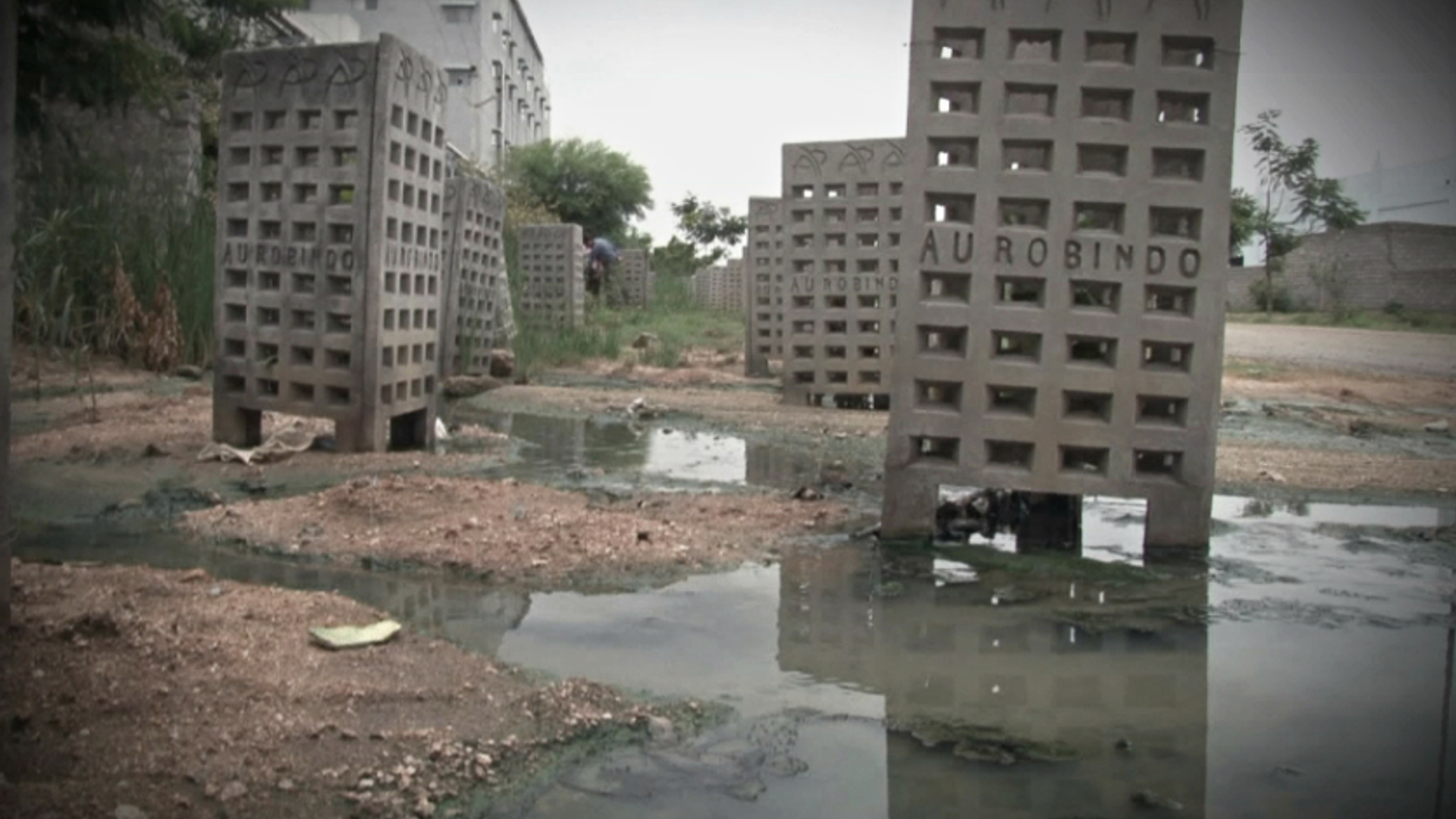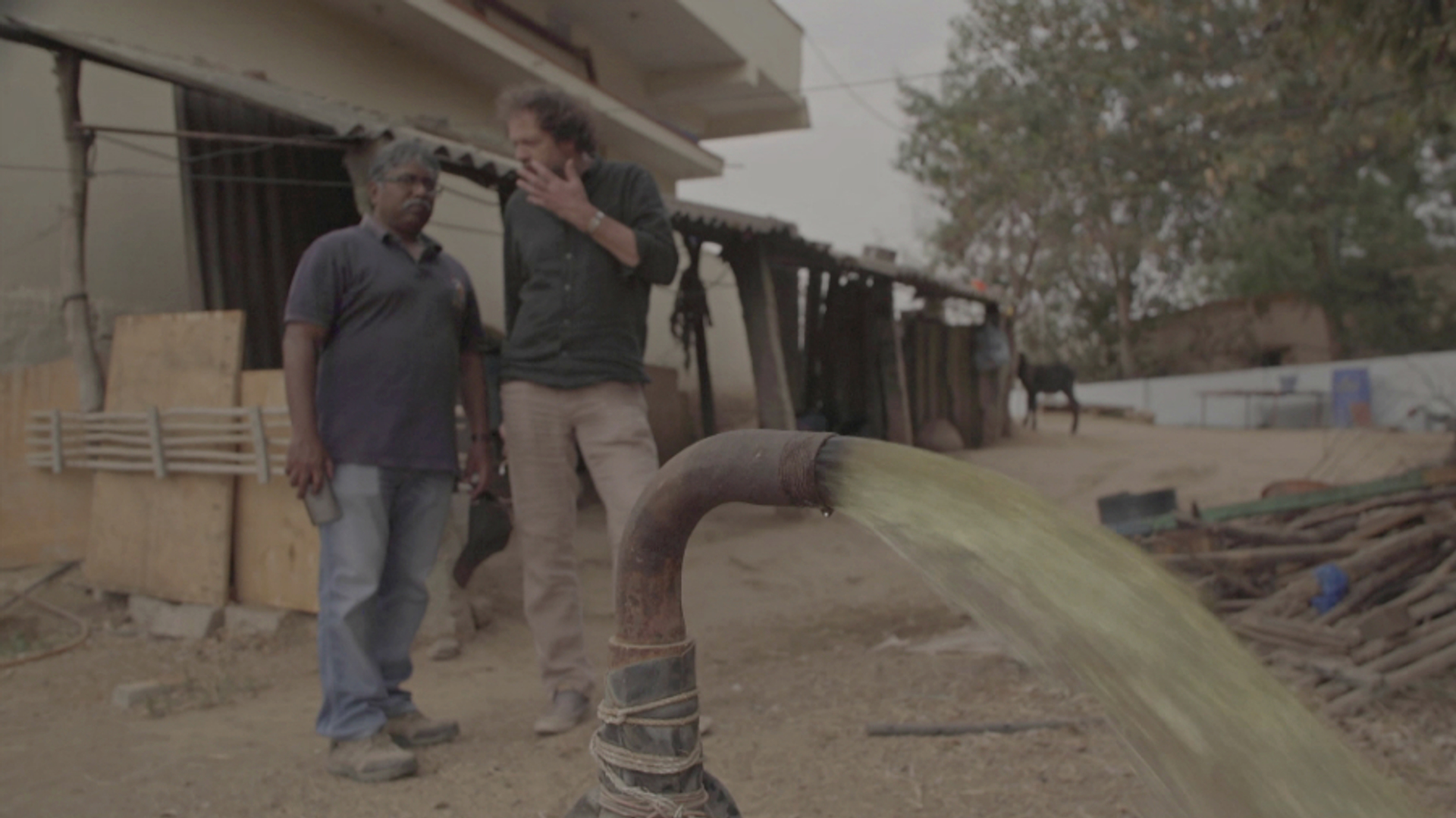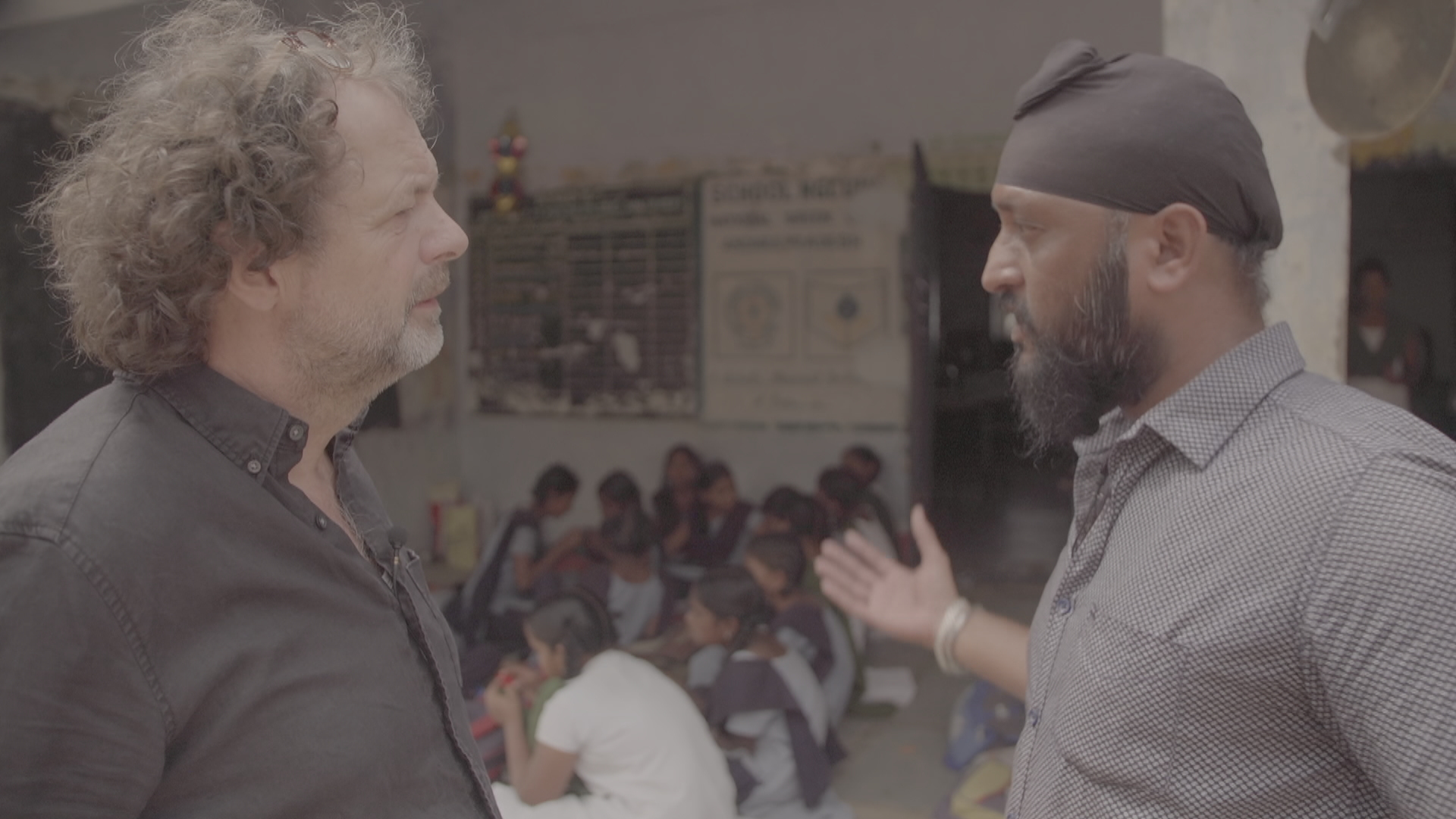Onafhankelijke onderzoeksjournalistiek
'Manufacturer of Dutch medicines exploit workers and pollute the environment'
10-04-2018
•leestijd 4 minuten
•668 keer bekeken
•
The pharmaceutical company Aurobindo Pharma takes a reckless attitude towards both people and the environment in India, according to experts interviewed in this edition of ZEMBLA. Aurobindo, one of the biggest manufacturers of generic drugs for the Dutch market, doesn’t pay its employees enough and contravenes health and safety regulations in its factories.
ZEMBLA also shot footage at multiple locations in India where Aurobindo and other pharmaceutical companies have illegally discharged chemical effluent. As a result, the nearby residents are exposed to health risks and the environment has been contaminated. According to environmental and employment experts, companies like Aurobindo ignore legislation in order to save money. 'They want to cut manufacturing costs.' Aurobindo stated that they comply with local and international legislation.
'People in developing countries are being exploited'
Many of our medicines are made in India, which provides development opportunities for the country. However, according to Prof. Prasad, a sociologist at Hyderabad University, the local population and the employees are paying a high price for our cheap medicines. 'People in developing countries are being exploited.' Every day, over 60,000 boxes of Aurobindo medicines are dispensed by Dutch pharmacies.
The real price of cheap medicine
ZEMBLA - 'The real price of cheap medicine'
Poor working conditions
Research by ZEMBLA shows that trained Aurobindo employees earn less than the minimum wage (between €150-€250 per month), with the technical staff claiming to earn a monthly salary of around €110. 'It's only just enough to buy food,' they explain. With a permanent contract, they would earn almost twice as much, but Aurobindo employees are not given permanent contracts, even if they’ve been working there for six years, or even ten years. 'If we complain, we lose our job.'
Research by ZEMBLA shows that trained Aurobindo employees earn less than the minimum wage (between €150-€250 per month), with the technical staff claiming to earn a monthly salary of around €110. 'It's only just enough to buy food,' they explain. With a permanent contract, they would earn almost twice as much, but Aurobindo employees are not given permanent contracts, even if they’ve been working there for six years, or even ten years. 'If we complain, we lose our job.'
The employees also report that Aurobindo is less than stringent when it comes to employee safety. 'There is no safety equipment such as protective glasses, gloves, masks, and safety shoes.' The Indian media report that in the last ten years, many accidents have occurred in Aurobindo factories, resulting in at least eight deaths and many more injuries. The firm told ZEMBLA that its employees' wages are in compliance with all legal provisions. 'All employees receive the same level of health and safety facilities,' according to Aurobindo.
No jobs
Near the Indian village of Polepally is an Aurobindo factory that manufactures drugs for the Dutch and other markets. Residents of the poverty-stricken farming community were forced by the Indian government to move away in order to make space for the pharmaceutical industry. The farmers were promised jobs with Aurobindo, but they say Aurobindo will not employ them. 'The jobs are given to migrant workers, as they are cheaper.' Aurobindo doesn’t respond to questions about the villagers' situation.
Near the Indian village of Polepally is an Aurobindo factory that manufactures drugs for the Dutch and other markets. Residents of the poverty-stricken farming community were forced by the Indian government to move away in order to make space for the pharmaceutical industry. The farmers were promised jobs with Aurobindo, but they say Aurobindo will not employ them. 'The jobs are given to migrant workers, as they are cheaper.' Aurobindo doesn’t respond to questions about the villagers' situation.

Antibiotic resistance
Aurobindo also violates environmental law. Documents obtained by ZEMBLA show that in 2017, Aurobindo and other pharmaceutical companies were fined for illegal disposal of chemical effluent. The pollution resulted in the death of 230,000 fish in the lakes near the factories. Local fishermen told ZEMBLA that so far, they haven't received a penny in compensation.
Aurobindo also violates environmental law. Documents obtained by ZEMBLA show that in 2017, Aurobindo and other pharmaceutical companies were fined for illegal disposal of chemical effluent. The pollution resulted in the death of 230,000 fish in the lakes near the factories. Local fishermen told ZEMBLA that so far, they haven't received a penny in compensation.
This isn't the first time that pharmaceutical companies have released chemical waste into the environment in order to cut costs. Studies conducted by a variety of institutions – including the British organization Changing Markets – show that Aurobindo was also illegally releasing industrial effluent in 2016. In a water sample taken at an Aurobindo factory, Changing Markets discovered a bacterium that is resistant to six different antibiotics. Residents living near the Aurobindo factory in question told ZEMBLA that dumping of these pollutants only stopped in December 2017.
'Businesses make even bigger profits while the people here get sick'

Furthermore, teachers and pupils at a primary school next to an Aurobindo production unit are suffering health problems due to air pollution from the factory. The teacher at the school takes a very dim view of the situation. 'The result of the pharmaceutical industry in India is that businesses make even bigger profits while the people here get sick.'
CZ
Aurobindo is a major supplier of preferred medicines. Marie-José van Gardingen, spokeswoman for the health insurer CZ, stated that the decision to purchase Aurobindo medications was based only on price and not whether the drugs are sustainably produced. 'This footage makes me feel sick. We must take it seriously, it simply cannot be ignored.'
Aurobindo is a major supplier of preferred medicines. Marie-José van Gardingen, spokeswoman for the health insurer CZ, stated that the decision to purchase Aurobindo medications was based only on price and not whether the drugs are sustainably produced. 'This footage makes me feel sick. We must take it seriously, it simply cannot be ignored.'
CZ is considering possible measures against Aurobindo. 'We have to look for alternatives, and I'm sure we'll find one.' CZ has announced that by 2019, it will require suppliers like Aurobindo to provide a sustainability declaration. 'We want everyone we do business with to sign a declaration stating that they fulfil their responsibilities with regard to people, nature and the environment.' The health insurers VGZ, Zilveren Kruis, and Menzis also purchase medicines from Aurobindo, but declined to respond to our findings on camera. They stated that the situation must be brought to the attention of Aurobindo and the government.
Praat mee
Altijd op de hoogte blijven van het laatste nieuws?
Schrijf je in voor de Zembla-nieuwsbrief en blijf op de hoogte van onze onthullende journalistiek.